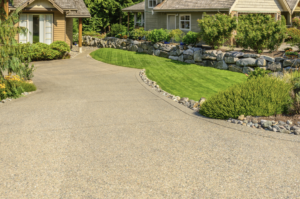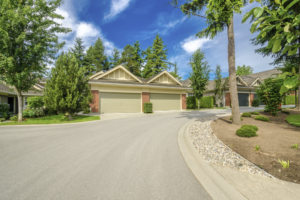The asphalt paving industry is adopting eco-friendly practices to reduce environmental impact. From recycling materials to innovative technologies, sustainability is transforming the way we pave roads and driveways. Let’s explore the green solutions shaping the future of sustainable asphalt paving.
Why Sustainability in Asphalt Matters
Traditional paving methods have long been associated with high energy consumption and waste production. Asphalt production requires heating, and road construction generates significant emissions. Sustainable practices address these challenges by reducing energy use, reusing materials, and minimizing environmental impact. This not only benefits the planet but also reduces costs and improves the longevity of asphalt surfaces.
Recycling Asphalt: Turning Old Roads into New Ones
Reclaimed Asphalt Pavement (RAP) is a game-changer for sustainability in the paving industry. RAP involves recycling old asphalt by crushing and reprocessing it into new mixtures. This reduces the need for raw materials like aggregate and bitumen, conserving natural resources and cutting down on landfill waste.
Using RAP doesn’t compromise quality. In fact, recycled asphalt often improves the durability of the final product. Many projects now incorporate high percentages of RAP, delivering strong, long-lasting results while being environmentally friendly.
Warm Mix Asphalt: A Low-Temperature Alternative
Warm mix asphalt (WMA) technology is revolutionizing the way asphalt is produced and laid. By reducing the temperatures needed during production, WMA lowers energy consumption and greenhouse gas emissions. These lower temperatures also improve working conditions for paving crews and allow for longer transportation times, increasing project flexibility.
The reduced energy demand of WMA makes it a cost-effective solution that aligns with green goals. Its growing popularity in both public and private projects demonstrates its potential to become a paving standard.
Permeable Pavement: Supporting Stormwater Management
Permeable asphalt pavements are another sustainable innovation. These surfaces allow water to pass through, reducing runoff and promoting natural groundwater replenishment. By incorporating permeable materials, paving projects can help combat urban flooding and improve water quality by filtering pollutants.
Permeable pavement is particularly valuable in areas with high rainfall or drainage concerns. It provides an eco-friendly solution while maintaining the durability and appearance of traditional asphalt.
Reducing Emissions in Asphalt Production
The asphalt industry is exploring renewable energy sources and advanced technologies to further reduce emissions. Solar-powered equipment, improved plant efficiency, and cleaner production methods are all part of this effort. These advancements align with global climate goals and enhance the reputation of asphalt as a sustainable construction material.
Green Practices at Walt’s Paving
At Walt’s Paving, we are committed to integrating sustainable practices into every project we undertake. Whether using recycled materials, offering warm mix asphalt solutions, or designing permeable surfaces, we prioritize eco-friendly methods that deliver exceptional results. Sustainability isn’t just a trend for us; it’s the foundation of our business.
The Future of Asphalt Paving
Sustainable asphalt paving is more than a buzzword; it’s the industry’s future. As technology advances, green practices will become increasingly accessible and effective, benefiting both the environment and property owners. By choosing sustainable options, you contribute to a greener world while enjoying high-quality paving that lasts.
For expert paving services that prioritize sustainability, trust Walt’s Paving. Contact us today to learn more about our green practices and how we can bring your project to life with an eco-friendly approach.
Do you have more questions?
We believe in offering quality service and have a proven track record of helping customers! If you have any further questions regarding our services, please contact us today.







